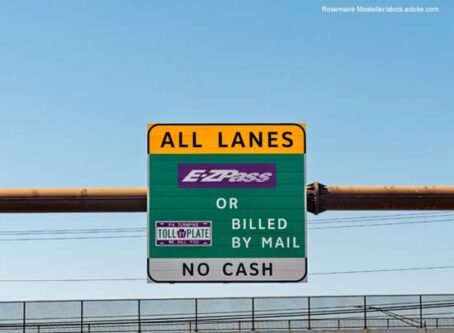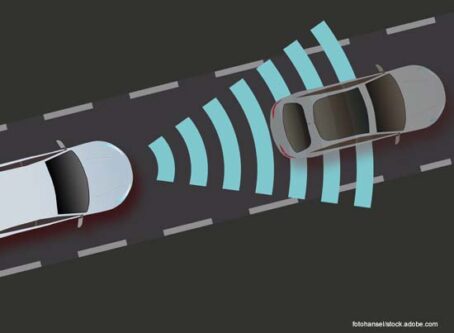Rules on autonomous trucks a trending topic at statehouses
Legislative action at statehouses around the country covers the use of autonomous trucks on public roadways.
Truck platooning technology advocates insist it saves fuel due to reduced aerodynamic drag, lessens traffic congestion and improves highway safety.
Critics, including motorcyclists, question how automated vehicles and traditional vehicles will interact on roadways. Others doubt whether widespread use of the technology is realistic.
The Owner-Operator Independent Drivers Association recognizes that the rapid development of autonomous technology has potential. However, OOIDA has pointed out the technology poses challenges as it relates to commercial vehicles and highway safety.
California
A renewed pursuit in California to rein in the use of autonomous trucks is scheduled to be discussed in the coming weeks.
One year ago, state lawmakers sent Gov. Gavin Newsom a bill to prohibit autonomous vehicle operation with a gross vehicle weight of at least 10,001 pounds for testing purposes, transporting goods or transporting passengers without a “human safety operator physically present” in the vehicle during operation.
Newsom rejected the revision. He said it is “unnecessary” for the regulation and oversight of heavy-duty autonomous vehicle technology in the state. In his veto message, the governor referred to a 2012 state law that provides the DMV with authority to regulate the testing and deployment of autonomous vehicles on state roadways.
Hopeful that recent incidents in California involving autonomous vehicle companies could sway the governor to rethink his stance, Assemblymember Cecilia Aguiar-Curry, D-Winters, reintroduced her bill.
“The autonomous trucking industry has cast this bill as a ban on technology, when it explicitly states that testing and deployment will happen with a human safety operator,” Aguiar-Curry said in prepared remarks. “Using their logic, they’re the ones who support a ban: a ban on humans in trucks.”
The bill, AB2286, is identical to last year’s version. The Assembly Transportation Committee is scheduled to discuss it during an April 14 hearing.
Kentucky
In Kentucky, one bill would amend the state’s requirement for truck platooning.
Statute authorizes truck platooning. A human driver is required to be behind the wheel of a trailing platoon vehicle.
In 2023, Gov. Andy Beshear vetoed legislation to authorize only the lead vehicle in a platoon to have a human driver behind the wheel. A requirement was included that trailing vehicles be fully engaged.
Beshear cited safety concerns for his action. In his veto message, the governor said the bill “is ambiguous and broad and does not provide enough specifics, including about how it can be implemented, monitored and enforced.”
This year’s version, HB7, is described as legalizing driverless trucks with little to no oversight.
“We cannot let California’s ‘Big Tech’ write laws for our state,” Teamster Fred Zuckerman stated. “Lawmakers need to pass legislation that’s by and for Kentucky residents.”
House lawmakers voted 61-31 to advance the legislation with a revision to require a human driver to be present in automated trucks exceeding 62,000 pounds for the first two years after enactment. The bill has been sent to the Senate floor with additional revisions possible.
New York
Two New York bills cover the operation of autonomous trucks.
State law has no requirements for large vehicles to have a human in the cab capable of taking control of the vehicle in case of emergency.
A8621/S7758 would require operators to accompany trucks with autonomous technology while traveling the state’s roadways. The rule would apply to autonomous vehicles weighing more than 10,000 pounds.
Sen. Pete Harckham, D-Peekskill, said the importance of the trucking industry requires that state lawmakers be proactive and vigilant about public safety and job security when it comes to technological innovations like autonomous vehicles.
“The trucking industry is the backbone to middle-class social mobility, but unfortunately, these good-paying jobs are under attack,” Harckham said.
Each bill is in its respective transportation committee.
South Dakota
South Dakota Gov. Kristi Noem signed into law a bill that is touted to boost intrastate freight.
HB1095 establishes a regulatory framework to allow autonomous vehicles, including commercial vehicles, to operate on state roads without a human operator behind the wheel. Municipalities are prohibited from passing laws to govern affected vehicles.
Specific to large trucks, fully autonomous commercial vehicles are expected to follow state laws governing operation, except that “any provision that reasonably applies only to a human driver does not apply to a vehicle operating with the automated driving system engaged.”
The South Dakota Peace Officers’ Association opposed the rule changes for all autonomous vehicles.
David Miller, SDPOA president, cited concerns about what his group has seen with driverless vehicles on roadways around the country. He said the new law will make South Dakota roadways “significantly more dangerous.”
States fail to enact changes
Elsewhere, legislation in Florida, Indiana and Iowa to address autonomous truck rules did not advance.
The Florida bill called for enacting a requirement that a licensed human operator be physically present in a fully autonomous vehicle with a gross vehicle weight of at least 10,000 pounds. The rule would apply when the vehicle is operating on a public road in the state to transport goods or passengers.
Two Indiana bills sought to expand statute to specify that a person may not operate an autonomous tractor-trailer on a highway to transport passengers or goods unless a human operator is physically present in the affected vehicle.
Operators also would have been required to meet all state and federal qualifications to operate a vehicle and an autonomous vehicle.
The failed Iowa bill would have mandated that a “conventional human driver” be physically present in a driverless-capable vehicle operated for commercial purposes. The operator also would have been required to hold a driver’s license and any endorsement for the operation of the vehicle. LL









